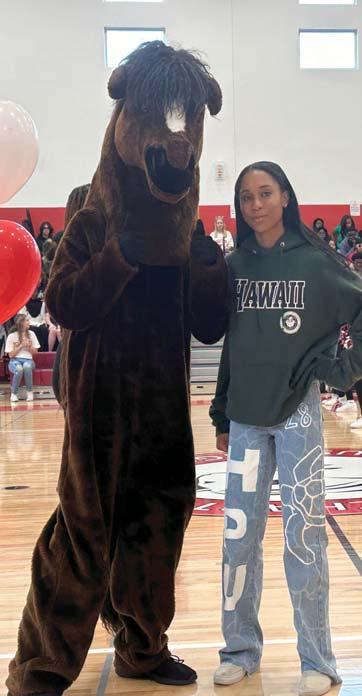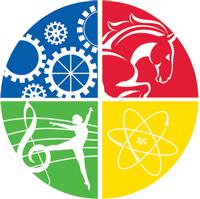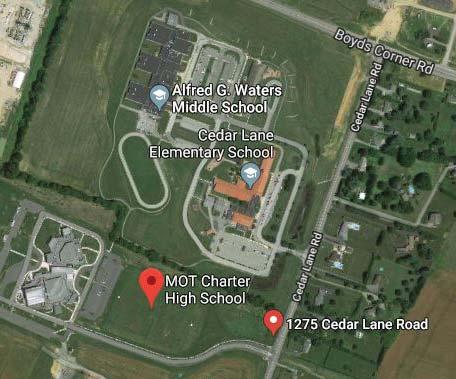HIGH SCHOOL
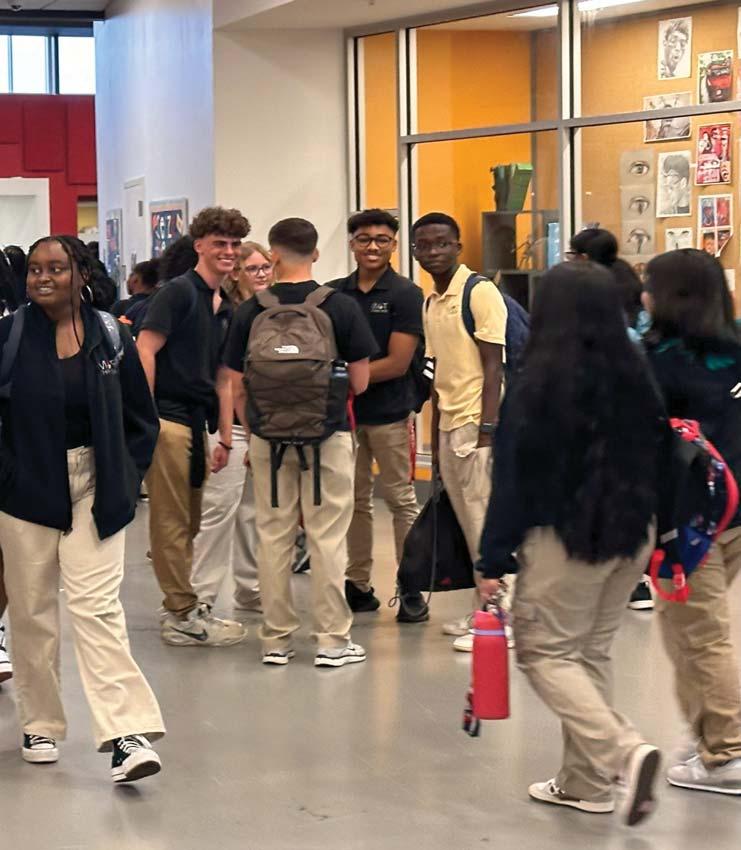


2025-2026
This catalog is more than a list of courses - it’s a roadmap to discovery and an invitation to explore, create, and invent. We believe STEM and Art don’t exist in isolation. Instead, they intertwine and intersect - inspiring and elevating one another.
Chase (‘27) is a talented Computer Science major with an eye for photography and videography. Starting high school he quickly found opportunities to put his skills to work. As a freshman, he led the transformation of our 2024 Graduation Ceremony’s video production - recruiting a student tech crew, upgrading equipment, and designing custom graphics for the livestream. Using these tools, Chase now produces a daily morning video segment to open each school day. This year, you can find him on the sidelines covering sport events, running the video & lighting control boards during school musicals, and building his digital media side gig. Chase is one example of how students at MOT Charter don’t have to choose between technical expertise and creative expression, rather they choose to use their passion to create a real-world impact. By exploring both STEM and the Arts, students develop the versatility, innovation, and problem-solving skills that will set them apart in college, careers, and beyond.
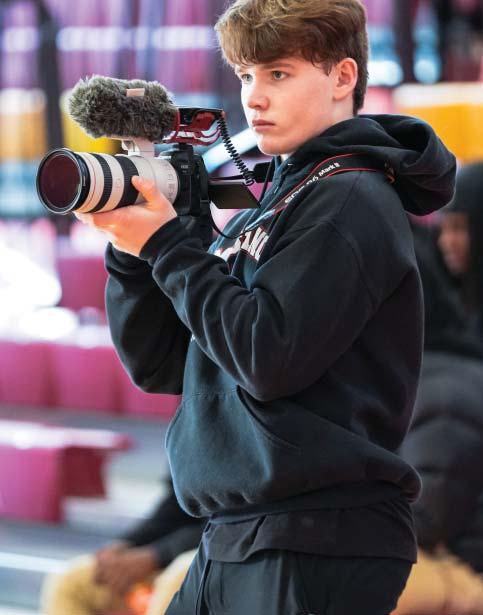
CHASE C. (‘27) Computer Science
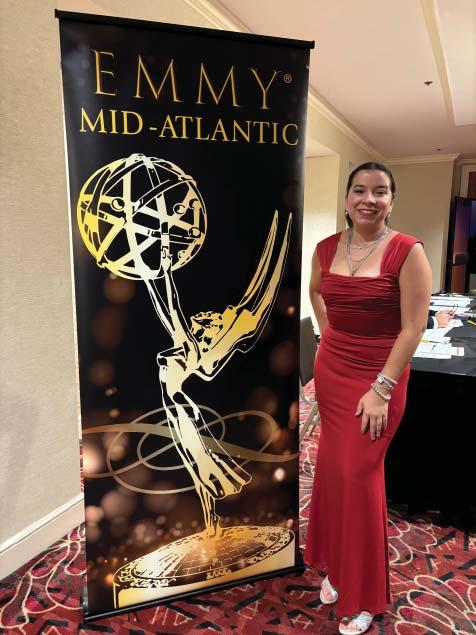
Catalina (‘21), who majored in Dance during her time at MOT Charter. She was accepted to Temple University and graduated a semester early with a B.A. in Journalism with a concentration in International Communication from Klein College of Media and Communication.
During college, Catalina worked as a Production Assistant at NBC10 and Telemundo62. Catalina earned an Emmy nomination for two Temple Update shows she produced in the Best College/University Student Production - Newscast category by the National Academy of Television Arts and Sciences (NATAS) Mid-Atlantic. She now works as a News Producer for WGAL 8 TV in Pennsylvania.
As you plan your academic path, think not just about what you want to learn, but what you want to create - because the future isn’t just something to prepare for. It’s something you get to design.
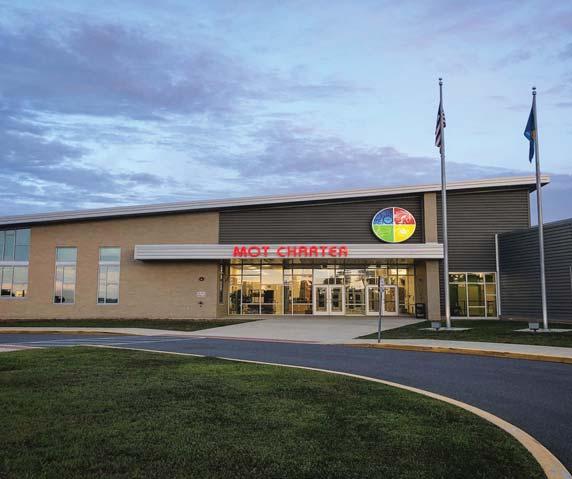

The faculty and staff at MOT Charter strive to provide an environment which allows our students to reach their full academic and personal potential. We believe that when students have the ability to explore interests, see value in asking questions and take risks they learn to see themselves as an important member of the larger community; where willingness to get involved leads to making a positive impact.
The college preparatory program is designed to be rigorous and thought provoking. For students to succeed in postsecondary education and/or their career they need to have the skill set to be problem-solvers, strong communicators and find the value and joy of being a lifelong learner. Our faculty understands there are many ways in which students can learn and are trained to provide enrichment and support to all students. Extracurricular activities are offered to students to expose themselves to a variety of interests which allow them to discover or deepen their individual talents and interests.
This Curriculum Guide is provided to allow existing and prospective members of the MOT Charter High School community to make informed academic decisions. It is important to note that this information is subject to change at any time based on the needs of students and the school.
Our schedule is designed to provide students with a consistent learning environment by structuring the courses to run through the full academic year. Days are structured using an alternate block schedule, in which classes consists of four 90 minute periods four days a week, and one day each week focuses on community engagement and time for additional academic support. Benefits of this schedule are:
• Faculty see fewer students during the day, giving more time for instruction
• The increased span of teaching time allows for intensive learning activities to be completed during each class
• Students have more time for in-depth exploration, discussion and engagement over the course of a school day
Please do not hesitate to contact us with any questions or concerns.
Best,

EMAIL: Ned.Southworth@mot.k12.de.us
EnglishIntegrated World Literature
MathIMP level based on placement test (IMP 1, IMP 2, or IMP 3)
ScienceIntegrated Environmental OR AP Environmental
Social StudiesCivics & Geography OR AP Human Geography
World Language Level based on placement test (Spanish 1, Spanish 2, or Spanish 3)
ARTS MajorsMarketing I or Digital Media I AND 1st studio major pathway class
STEM MajorsIntroduction to Computer Programming
AND
Engineering & Design 1
State Requirements Physical Education (0.5 credit) AND Health (0.5 credit)
EnglishBritish Literature & Composition
MathPlacement based on prior level (IMP 2, IMP 3, IMP 3/4 [2 credits], or IMP 4)
ScienceIntegrated Biology (1 credit) OR AP Biology (2 credits)
Social StudiesEconomics & Personal Finance
World Language Placement based on prior level (Spanish 2, Spanish 3, or Spanish 4)
ARTS MajorsMarketing II or Digital Media II AND 2nd studio major pathway class
STEM Majors
Biotechnology
Computer Science Engineering Biotechnology 1
AP Computer Science Principles
Engineering & Design II
State Requirements Driver’s Ed (0.25 credit) AND Physical Education (0.5 credit) AND PSAT/SAT Preparation (0.25 credit)
STEM MajorsElectives to fill 8 credit schedule
This guide is designed to prepare students for college, or their chosen career, and give them information on pathways and electives which help them explore various areas of interests.
All students can access accelerated math courses and the chance to earn college credits through Advanced Placement (AP), Dual Enrollment, or Early College courses (students must meet prerequisites and/or eligibility criteria to enroll in AP and Early College).
See the Graduation Requirements (page 41) for graduation eligibility information.
EnglishAmerican Literature OR AP Literature and Composition
MathPlacement based on prior level (IMP 3, IMP 3/4 [2 credits], IMP 4, or AP Calculus AB)
ScienceIntegrated Chemistry (1 credit) OR AP Chemistry (2 credits)
Social StudiesU.S. History OR AP U.S. History
World Language Placement based on prior level (Spanish 3 or 4 or 5, or AP Spanish)
ARTS Majors3rd studio class in major pathway
STEM Majors
Biotechnology
Computer Science
Engineering Biotechnology II
AP Computer Science A
Engineering & Design III
ALL MajorsElectives to fill 8 credit schedule
EnglishWorld Literature OR AP Language and Composition
MathPlacement based on prior level IMP 4, Statistics, Differential Calculus, AP Calculus AB or BC)
ScienceIntegrated Physics (1 credit) OR AP Physics (2 credits)
Social StudiesWorld History OR AP World History
World Language Placement based on prior level (Spanish 4 or 5, or AP Spanish)
ARTS MajorsStudio major pathway class OR Elective
STEM Majors
Biotechnology
Computer Science
Engineering Biotechnology III
Web Design with JavaScript OR Computer Science IV OR Elective
Engineering & Design IV OR Elective
ALL MajorsElectives to fill 8 credit schedule
Incoming Freshman ONLY: May receive transfer credit for high school courses completed with a C or higher at accredited middle schools. These credits count toward requirements but do not impact GPA. English credit: Placement in English 10 for 9th graders is based on their 7th and 8th grade SBAC ELA scores, requiring a score of 4 both years. Students must still complete a four-year ELA requirement. Math credit: Placement is based on a required placement test. Students still have a four-year math requirement.
World Language credit: Placement is based on a placement test. Students still have a three-year World Language requirement. Students with a non-Spanish transfer credit will need to take Spanish for two years. Spanish immersion students who scored 3 or more on an AP Spanish course (taken in 8th grade) should speak with their counselor regarding language requirements and placement.
This introductory course focuses on literary texts that represent diverse cultures and perspectives. Students will explore literature by reading and writing about fictional and non-fictional texts. Major assignments include argumentative essays, modern translations of classic literature, and the creation of lessons analyzing poetry. Additionally, students will be expected to give oral presentations and work in collaborative groups. 1 Credit
This course focuses on British texts that represent a variety of genres from both classic and modern sources. Classwork includes collaborative assignments, research, and literary analysis.1 Credit
This course focuses on a variety of American writers. Students read a wide variety of texts with universal themes and further develop analytical thinking skills and expand their writing skills. Major assignments include an MLA style research paper and literary arguments. 1 Credit
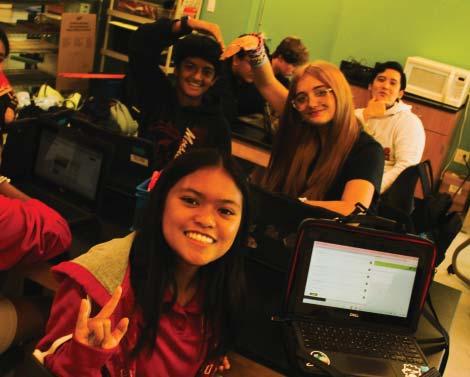
Course exposes students to a variety of literature written throughout the world including African, Asian, European, Latin American and the Middle Eastern texts. These texts, as well as essays, will challenge students to think critically about commonalities and differences among geographic regions, cultures and historical developments. Major assignments include research-based projects and literary analyses. 1 Credit
Students are exposed to the art of rhetoric as they annotate and analyze a variety of complex texts. Students will write analytical essays in various forms including narrative, expository, and argumentative. Major assignments include critical thinking activities and practice tests that prepare students to excel on the AP Literature and Composition Exam. 1 Credit
Students write on a variety of topics from personal experiences to public policies from imaginative literature to popular culture, while writing in a variety of forms: narrative, expository exploratory, and argumentative. As in the college course it models, the course’s purpose is to enable students to read complex texts with understanding and to write pose of sufficient richness and complexity to communicate effectively with mature readers. 1 Credit
Throughout this course, students will apply algebraic and geometric techniques to solve real life problems and create mathematical models. Topics include, but are not limited to function building, linear graphing, similarity, informal proofs, and development of trigonometric functions. Students are placed in IMP 1 unless placement test shows evidence of previous skill acquisition. 1 Credit
Throughout this course, students will build on and apply advanced algebraic, geometric and statistical techniques to solve real life problems and create mathematical models. Topics include but are not limited to, systems of linear equations and inequalities, linear programming, geometric proofs, triangle congruencies, quadratic functions, normal distributions, standard deviation and spread of data. 1 Credit
Throughout this course, students will apply geometric, pre-calculus, and probability techniques to solve real life problems and create mathematical models. Topics include, but are not limited to derivatives, logarithms, binomial distribution, three dimensional graphing, trigonometry, matrices & area of complex figures. 1 Credit
Throughout this course students will apply concepts of geometry, pre-calculus and calculus to solve real life and problems and create mathematical models. This course is designed to culminate all mathematical ideas and concepts that have been previewed in IMP 1, 2 and 3. Topics include, but are not limited to, unit circle, graphing of trigonometric functions, physics of falling objects, polar coordinates, projectile motion, algebraic proofs, composite functions, regression lines, asymptotes, limits, geometric proofs, circles, rationalization, area under curves, and the Fundamental Theorem of Calculus. 1 Credit
IMP 3/4 reorders the units in a meaningful way to blend content & promote depth of understanding. This class meets daily. 2 Credits
(Wilmington University – MAT308, 3 Credits)
The purpose of this course in Statistics is to introduce students to the major concepts and tools for collecting, analyzing, and drawing conclusions from data. Students will be exposed to four broad conceptual themes: exploring data, planning a study, anticipating patterns, and statistical inference. 1 Credit
Differential Calculus will cover the topics of trigonometric identities, limits. Derivatives, and tangent lines. Students will be able to calculate and understand the concept of limits graphically and using algebra. Students will gain a deep understanding of derivatives and be able to calculate derivatives algebraically. Students will be using trigonometric identities and rationalization techniques to simplify all functions. Students will learn how to fit a curve to an equation using their knowledge of limits and derivatives. 1 Credit
AP Calculus AB is similar in content to a first semester introductory college course in calculus. Topics include the study of functions, limits, continuity, differential calculus with its applications, and integral calculus with its applications. 1 Credit
AP Calculus BC is the equivalent of a second semester college calculus course. This course presumes that students have successfully completed AP Calculus AB. Topics covered include a rigorous approach to limits, parametric functions, vectors, improper integrals, sequences, and series. 1 Credit
Focusing on nature and process of science, students explore fundamental topics in biology, chemistry, physics, Earth science, and environmental sciences situated in real-world issues. Students learn and use skills to explore large problems facing scientists and society through a student-centered, inquiry-based approach. 1 Credit
Covers scientific principles and methodologies needed to understand the complex relationships within the natural world, allowing students to identify, analyze, and evaluate solutions to environmental problems such as: ecosystems, population dynamics, land and water use, energy resources, pollution, and global change. Includes a strong emphasis on hands-on laboratory work and field investigations. 1 Credit
Applies concepts from chemistry, physics, earth, and environmental science to major biological concepts. Using a student-centered, inquirybased approach, students investigate major themes of Ecology, Evolution, Physiology/Cellular biology, and Genetic/Molecular biology. 1 Credit
College-level introduction to biology, covering core scientific principles and processes that govern living organisms, including hands-on laboratory work. Key topics include cell structure and function, genetics, evolution, ecology, and cellular energetics, with an emphasis on inquirybased learning and scientific investigation skills like designing experiments, analyzing data, and drawing conclusions. 2 Credits
Applies concepts from biology, physics, Earth science and environmental science to major chemistry concepts. Using a student-centered, inquiry-based approach, topics include: atoms
and their interactions, properties of materials, and changes in matter. Focus on connecting observable phenomena to underlying particle actions or interactions, & symbolic ways of phenomena representation including chemical systems mathematical modeling. 1 Credit
College-level introduction to chemistry, covering atomic structure, chemical bonding, stoichiometry, thermodynamics, kinetics, equilibrium, acids and bases; and includes substantial hands-on laboratory work. Students learn to apply science practices such as: describing, interpreting, and analyzing models; designing experiments and analyzing data; creating representations of data and chemical systems; using mathematical routines to solve problems; and providing evidence and reasoning to justify a scientific claim. 2 Credits
Physics applies concepts from biology, chemistry, Earth science and environmental science to major physics concepts. Through an inquirybased and student-centered approach, students will study major concepts in physics, including forces, energy, waves and space systems. Focus on connecting observable phenomena to invisible forces and symbolic ways of phenomena representation including algebraic mathematical modeling. 1 Credit
College-level introduction to physics topics such as mechanics, energy, and momentum. Through a student-centered, inquiry-based approach, students study major concepts including kinematics, Newton’s laws of motion, circular motion, and gravitation. Focus on connecting observable phenomena to invisible forces and symbolic ways of phenomena representation including a heavy reliance on mathematical modeling utilizing algebra. 2 Credits
During the first half of the course, students will investigate and analyze the historical roots of our political system and examine how the public institutions and laws evolved throughout the generations. The second half of the course is dedicated to geography where students will apply analytical tools of mapping, human geography, and physical geography to study how humans interact based on location and available resources. 1 Credit
An introductory college-level human geography course. Students cultivate their understanding of human geography through data and geographic analyses as they explore topics like patterns and spatial organization, human impacts and interactions with their environment, and spatial processes and societal changes.. 1 Credit
Students will receive a foundation in financial planning including money management, budgeting, filing taxes, saving and investing, and risk protection. In the second half of the course, students will explore how economics systems work and how quality of life is impacted by broad social goals. Areas of focus will include economic systems, microeconomics, macroeconomics, and international trade. 1 Credit
(Wilmington University – HIS316, 3 Credits)
This course will begin with the Industrial Revolution in the United States. Students will build on their historical analysis skills including data analysis, research, interpretation and historical perspective. Students will integrate civics, economics, and geography disciplines along with their exploration of major political, economic, social and cultural developments in U.S. History since the Industrial Revolution. 1 Credit
This course focuses on the development of historical thinking skills and an understanding of content learning objectives organized around seven themes, such as identity, peopling, and America in the world. In line with college and university U.S. history survey courses’ increased focus on early and recent American history and decreased emphasis on other areas, the AP U.S. History course expands on the history of the Americas. 1 Credit
(Wilmington University – HIS204, 3 Credits)
World History examines the roots of modern global society through the study of social, political, cultural, economic, and environmental developments through time in a thematic approach to history. Major topics of study will range from the development of the earliest Homo sapiens society to the modern era. Students will use primary and secondary sources to explore the development of World History with focus on the connection between various civilizations across time and space and their impact on one another. 1 Credit
AP World History focuses on developing students’ abilities to think conceptually about world history from approximately 8000BC to the present and apply historical thinking skills as they learn about the past. Five themes of equal importance – focusing on the environment, cultures, state-building, economic systems, and social environment – provide areas of historical inquiry for investigation throughout the course. 1 Credit
Student-centered introduction to the language and cultures through stories, course is conducted in both Spanish and English. Topics familiar to students - school, friends, family, hobbies, etc. are intgrated with exploration of cultural practices, making comparisons between their own culture and those studied. By year end students can speak and understand simple Spanish sentences. 1 Credit
(Wilmington University – SPA301, 3 Credits)
Continues development of proficiency. Vocabulary, pronunciation, idioms and grammar are expanded to support oral & written communication and reading comprehension. Students write short paragraphs and engage in conversation. Class is primarily conducted in Spanish with goal emphasis of developing total immersion. 1 Credit
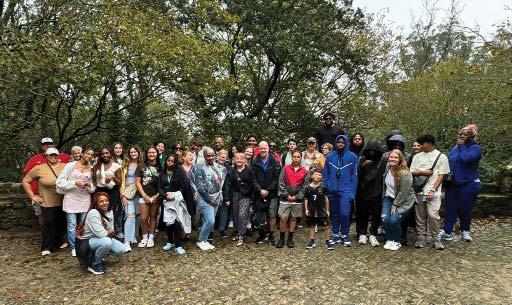
Our Global Program allows students to take advantage of exploring the world with trips which have included the Netherlands & France. Will you be the next to join the adventure? FOR MORE INFORMATION: https://www. motcharter.com/students-families/global-programs
Develop fluency by practicing expanded, sustained oral and written communication. Students engage in authentic situations while developing cultural perspectives. Class is conducted entirely in the target language. 1 Credit
(Wilmington University – SPA302, 3 Credits)
Increases fluency and comprehension by interpreting the practices, products, and perspective of Spanish-speaking cultures. Advanced vocabulary, use of idioms, and grammatical constructions are expanded and reinforced. Class is entirely conducted in the target language. 1 Credit
An in depth review of the Hispanic culture through the study of literature, music, art, cinema, and history. Spanning the ages, the class takes a thematic approach to understand how the products of yesterday maintain their relevance in the world of today. From the fantastic or unusual to the dark or fanciful, course tackles topics such as poverty, culture, tradition, and religion. Class is conducted entirely in the target language. 1 Credit
Empahsizes the use of Spanish for active communication and taught entirely in Spanish. Stresses oral and listening skills, written composition and reading comprehension. Students who enroll in this class, should already have a solid knowledge of the culture of the spanish speaking people and attained reasonable proficiency of the language 1 Credit
9TH & 10TH GRADES
Focused on fitness for life, working towards personal best and collaborative team work. Lifetime activities may include tennis, golf, badminton, jogging, walking, dance, yoga and Frisbee golf with an emphasis on skills, strategies and teamwork. Interaction among peers, specifically sportsmanship, teamwork and self- discipline, are highlighted. Physical fitness activities will also be included as part of the daily routine. 1 Credit
10TH GRADE
Students have the opportunity for individually paced review and practice of skills necessary for success on standardized testing. ¼ Credit
9TH GRADE
Development of physical, social and emotional wellness awareness and strategies. Topics include: mental and emotional health; healthy versus unhealthy relationships; family life and human sexuality; diseases and disorders (including STD’s, HIV and AIDS; tobacco, alcohol and other drugs), nutrition, physical activity and fitness for life (including development of a personal health plan), injury prevention and basic first aid. Students will be expected to identify the barriers which can hinder healthy decisionmaking and the factors that influence the formation of a healthy lifestyle. The utilization of expert guest speakers and focus on timely topics affecting adolescents helps students apply their learning to their own decision making process. ½ Credit
Driver Education is a course designed to provide students with a detailed understanding of the fundamentals of driving. The course promotes responsible attitudes and behaviors. This course is not a requirement for graduation but is a privilege provided by the State of Delaware.

WHEN DO DRIVER’S ED STUDENTS GO TO MOTOR VEHICLE?
Once a student successfully completes their classroom learning and student driving, their will receive a “blue certificate” which they will need to bring to the Delaware Motor Vehicle Division once they turn age 16 (or older).
FOR MORE INFORMATION: https://www.dmv. de.gov/DriverServices/index.shtml
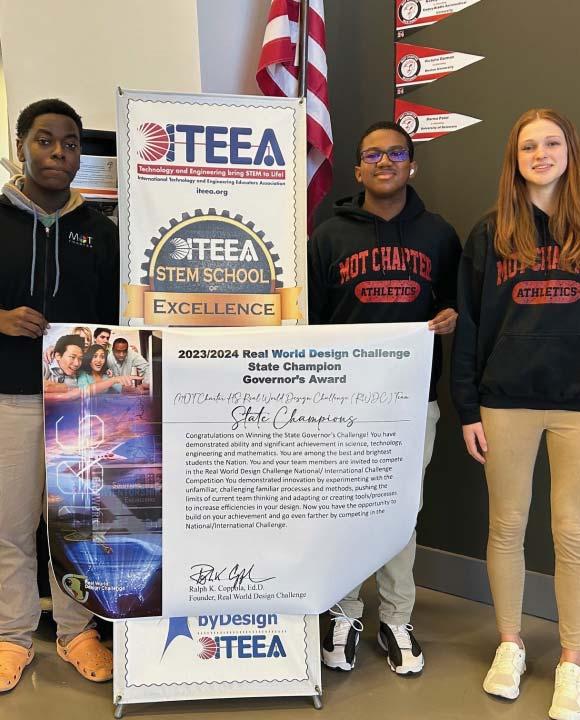
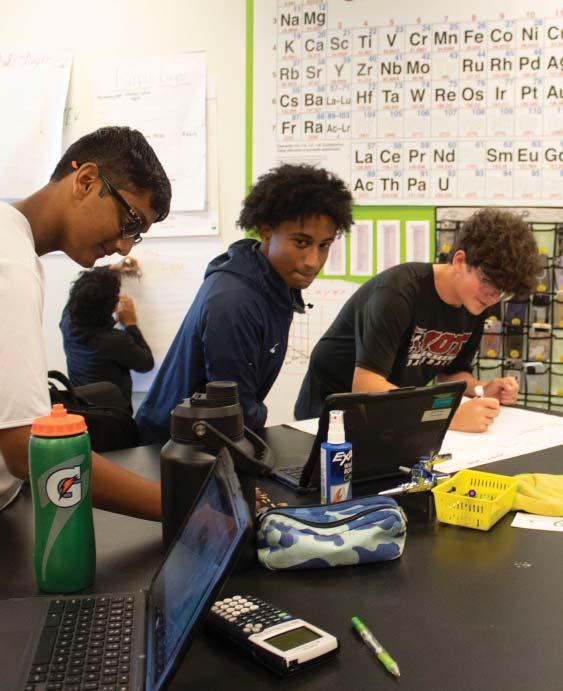
MOT Charter’s STEM Academy pathways are designed to expose students to the intricacies of science and exploration. Students are encouraged to question, challenge, and test scientific processes. Since failure is simply another way to learn and become more resilient, we look to provide an environment that is supportive of exploration and breaking down assumptions. Courses integrate ethics, politics, and social responsibility into traditional science and technology concepts.
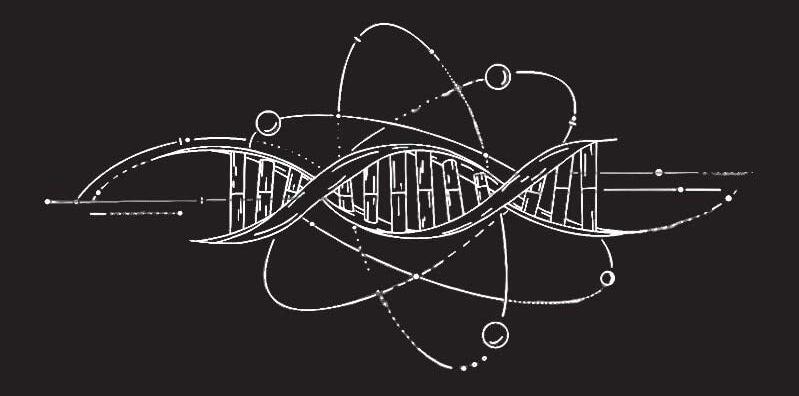
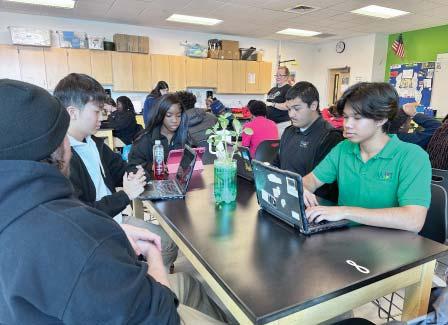
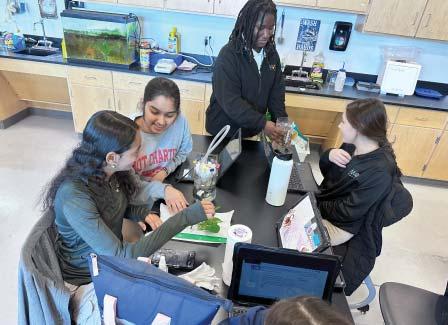
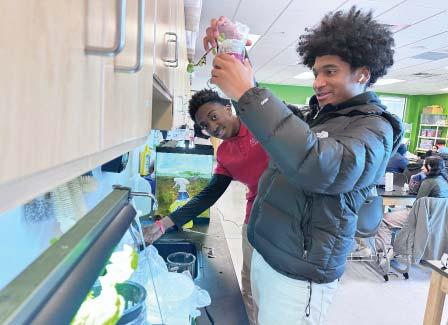
Introduction to the science of biotechnology that examines the social impact of current biotechnology issues. Topics include standard lab operating procedures, lab techniques, organisms used in labs, genetics and DNA, as well as the ethical, economic, environmental, political and historical impact of biotechnology on our society. Course is open to ALL students. 1 Credit
Building on learned skills, course focuses on how biotechnology is used in agriscience by using plants to represent different types of propagation techniques and comparing DNA isolation techniques. Introduces students to extraction of soil isolates to identify bacterial species in a soil samples; as well as the use of plants and microbes in bioproducts. Studentcentered learning continues as they prepare and conduct their own research, as well as learn how to manage and run a lab. The ethical, economic, and political impact of biotechnology is evaluated throughout. 1 Credit
Introduces biotechnology’s role in biomedical and forensic fields. Students will test and diagnose theoretical patients and suggest treatments for each patient based on results. Forensics exploration includes analyzing biological evidence to solve cases and understand real-world applications in criminal investigations.Biotechnology majors complete a capstone project, while non-majors design and implement an independent study investigation with instructor guidance. Lab work and research may be used to develop a portfolio for internships or college scholarships. 1 Credit
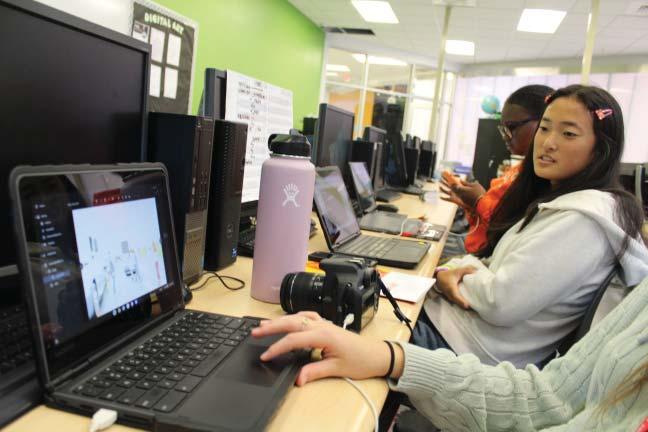
An introduction to computer science applications, concepts and computational practices; as well as web design and robotics. Programming languages include Scratch and and an introduction to JavaScript using App Lab. 1 Credit
(Wilmington University – SEC290, 3 Credits)
Exploration of the seven key computer science concepts with the AP College Board approved curriculum, Code.org. Coursework prepares students for the end-of-year AP Exam. 1 Credit
Curriculumn teaches object-oriented programming using Java. The emphasis is on problem solving and algorithm development with hands-on activities. Coursework prepares students for the end-of-year AP Exam. 1 Credit
(Wilmington University – SEC100 & SEC210, 3 Credits each)
Hands-on learning on the internal operations of personal computers along with troubleshooting, customer service skills and safety practices. Study then expands into learning the latest tips and techniques for computer security best practices to prepare for CompTIA certification. 1 Credit
(Wilmington University – CSC100 & CSC240, 3 Credits each)
Students learn HTML5 & CSS3 and JavaScript. Students will produce and publish basic web sites using HTML/CSS, forms, and tables. JavaScript is used for the programming logic incorporated into website browsers and apps. 1 Credit
Introductory course for all STEM majors acquire fundamental skills including the Engineering Design Process for problem solving, as well as project management, effects of technology on society, history of technology, patents, and other concepts. Through a project based learning approach, students are introduced to various Engineering fields such as Civil, Mechanical, Electrical/Electronic, Computer/Robotics, and Alternative Energy. 1 Credit
Utilizing numerous projects and simulations, content focuses on Engineering Design such as, Structural Design, Elements of Design, and Foundations of Engineering Design. Additionally, students complete a 3D Modeling unit with an introduction to 3D Printing, and learn the skills and knowledge principles involved with Project Management. 1 Credit
Advanced design applications for students who plan to continue their education in technical or engineering programs at a post-secondary level. Study of various Engineering technologies such as Manufacturing, Energy and Power, Construction, and Transportation in a projectbased approach. Students will conduct a major research project in Ocean Engineering and underwater technologies concluding with teams building an unmanned underwater robotic vehicle. Course concludes with a mini-capstone project. 1 Credit
Advanced curricula includes college-level engineering units such as industry-level Computer Aided Design, Robotics with programming, advanced Mathematical Analysis modeling, and completion of a major team project which applies the knowledge and skills learned in Engineering I-III. Students have the opportunity to earn college level credits, industry certifications, and technical certificates of completion. Working with industry or subject matter experts, students choose and complete a real-life major engineering or technical project, simulating the process industry professionals use to manage major projects. 1 Credit
(Prerequisite: Completion of Engineering IV in Junior year and Engineering instructor approval)
A student-designed independent study course that offers options such as completing up to four foundational college engineering courses for college credit, teaching lower-level engineering topics, mentoring Engineering team projects, completing advanced industry certifications or taking on various leadership roles related to engineering. Short-term internship opportunities may also be available. 1 Credit
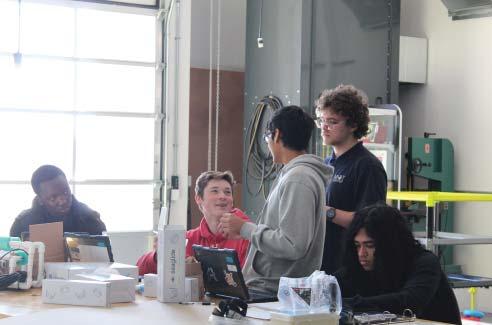
At the conclusion of freshman year, students may apply for the pre-medical concentration. Over the next three years students have the opportunity to earn distinction at graduation by passing the courses listed below. Pre-Medical Minor concentration at MOT Charter:
AP Biology • AP Chemistry • AP Physics • AP Calculus AB
Additional Coursework Recommendations: In addition to these courses, MOT Charter offers additional opportunities to help give motivated students a competitive advantage in their pre-medical undergraduate applications; these are not required for the minor:
AP Calculus BC • Statistics • AP Literature & Composition • AP Language & Composition
AP Environmental Science • AP Human Geography
Early College courses: Medical Terminology • Anatomy & Physiology (additional costs apply)
Students must meet application eligibility requirements and maintain minimum grade requirements to remain in the concentration program.
This concentration provides foundational coursework designed to help motivated students gain entry to, and be successful in, a competitive undergraduate pre-medical program
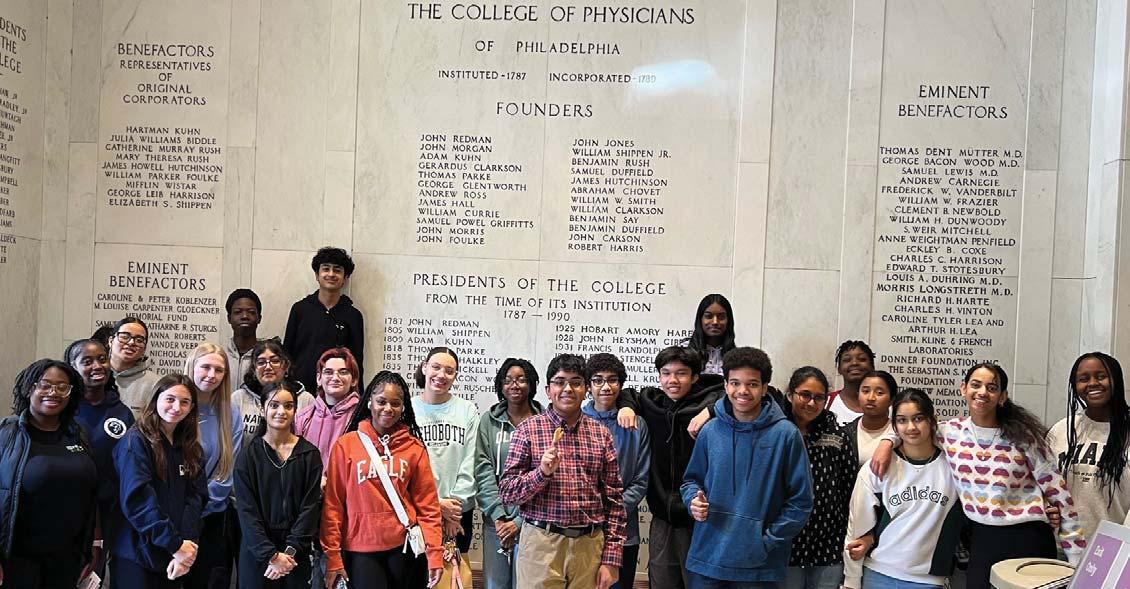
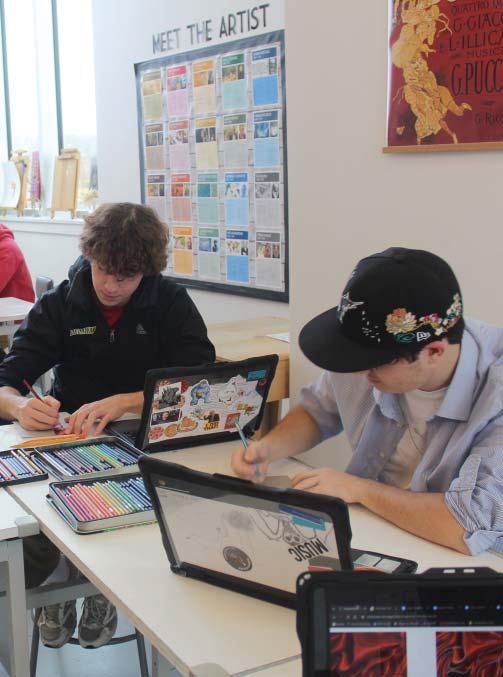
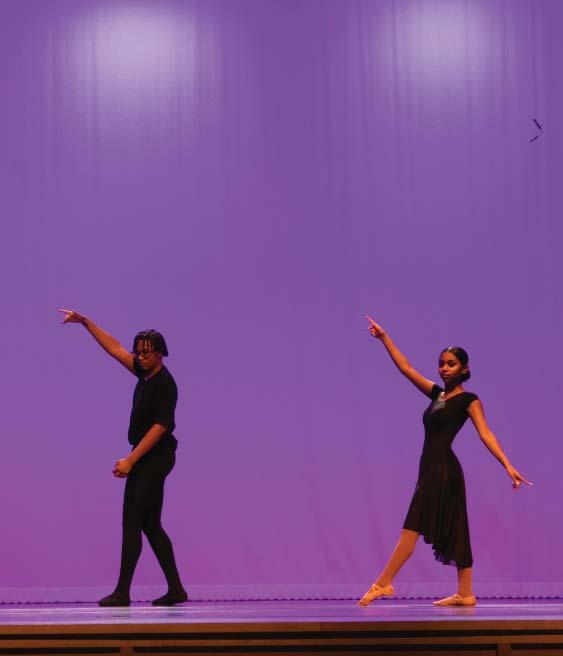
MOT Charter’s Arts Academy pathways are designed to explore and develop the creative potential of students interested in performing and/or visual arts. Students will showcase their talents through portfolios, gallery exhibits, plays, shows, and club activities. In addition, ALL Arts Academy students complete, a minor concentration in Marketing (or Digital Media starting with the Class of 2027), to give artists the skills needed to successfully market and showcase their talents for college preparation and in the professional world.
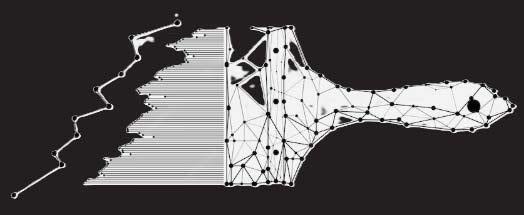
Introduces the fundamentals of ballet and other dance style techniques. Understanding of proper movement skills and building core strength through floor and barre techniques. Specific exercises enhance proper body placement, strength, flexibility, balance, musicality and movement coordination. Understanding and appreciation for dance as an expressive art form is gained through the Elements of Dance focus. While the foundation of dance is ballet, lyrical, jazz and modern dance are also explored. 1 Credit
Designed for the intermediate dancer, focuses on executing dance with more proficiency, strength and graceful qualities. Increased technique, personal growth in musicality and coordination. Topics include dance history, vocabulary, progression and artist interpretation of many genres. Exposure to additional dance styles and increased improvisation are added to performance opportunities. Dancers have opportunities for master classes and dance workshops. 1 Credit
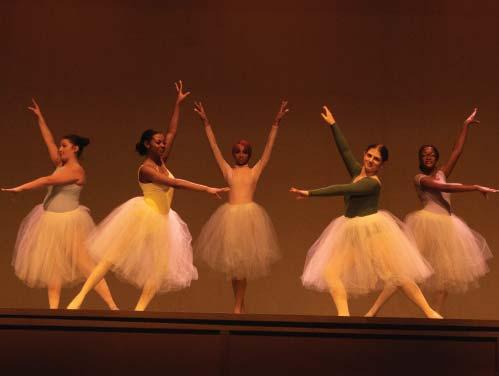
Designed to build artistry with intermediate/ advanced students. Stylings of noted choreographers and ballet variations, while continuing to build a dance vocabulary, are a core focus. Once an established knowledge of history and technique is presented, students will begin to focus on self- exploration as a performing artist. They will start development of dance portfolios and resumes including auditions for college application. 1 Credit
Focused on building a performance opportunity from classroom study and exercises continued into a student run showcase. Portfolios will continue to be refined. 1 Credit
(Prerequisite: Completion of Dance IV and Dance instructor approval.)
Course for dancers with advanced technical skills, with concentration on honing skills in ballet technique, as well as contemporary, jazz, and modern. Dancers create choreography for art expo performances. 1 Credit
Studies include tap, turns, tricks and leaps for the advanced dancer. Dancers focus on musicality, developing rhythmic patterns and Broadway style tapping. Proper technique application allows for more complex turning combinations including fouèttes and a la secondè turns. Jumps and leaps are executed at high proficiency. Recommended for students who have at least one year of dance technique in classic styling. 1 Credit
(Only open to Digital Media majors & Freshman)
Introduces elements of design in a digital media realm as well as the creation and manipulation of electronic imagery. Visual thinking and communication are emphasized. Weekly lab assignment studies include: digital image import, film scan, print and artwork; image creation and manipulation; web document image preparation, creating web photo gallery, animated GIF’s, and creation of archival inkjet prints as well as composite artwork by working with masks and layers in Photoshop. Adobe InDesign is introduced along with basic graphic design concepts. Students produce a final portfolio of electronic and printed images. 1 Credit
Professional graphic design programs Adobe Illustrator and Adobe InDesign are used to advance design skills. Students create and manipulate images, combine graphics & text, build page layouts and website designs. In-depth use of design elements and increased technical and aesthetic skills, with focus on developing an eye for detail to publish works which are growing to meet industry standard. 1 Credit
Focuses on the application of attained skills as well as the use of Flash and Edge Animate as students create, present and display a capstone portfolio project highlighting their cumulative body of digital arts work. Capstone can be used for entry level job applications, college applications and required portfolios. Final student work will be evaluated by a panel of career experts, teachers and peers. 1 Credit
Course refines visual communication and storytelling skills for careers in photography, photo editing, and digital design. Students complete two major Digital Media Design projects for collegiate and professional showcasing, supported by four research papers to enhance critical reading and writing skills. The course culminates in a finished web portfolio showcasing their work and exploring career paths in visual design. 1 Credit
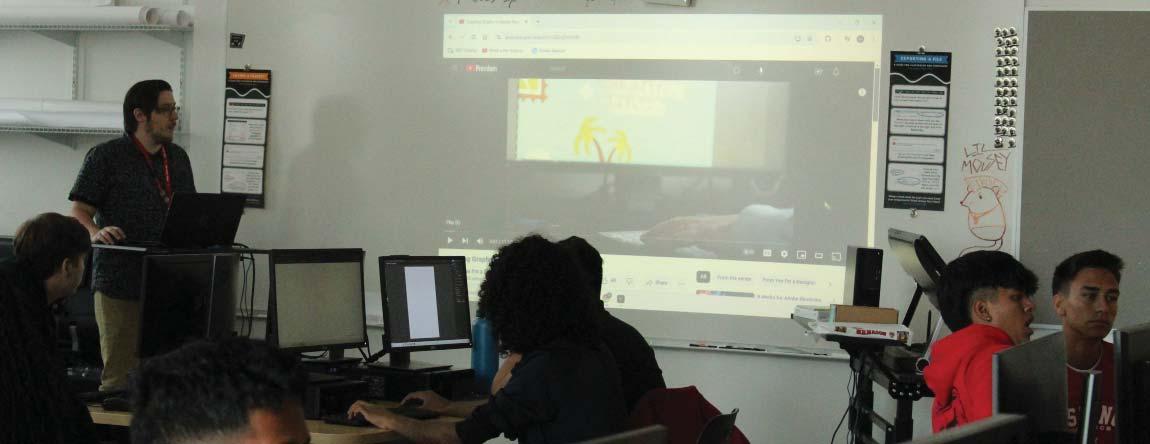
(Wilmington University – BMK305, 3 Credits)
Foundation in the principles of marketing including ethics, market research, targeting and segmentation, consumer behavior, branding, positioning, digital marketing, social media marketing, and personal branding. Students learn to design products and services based on customer preferences and develop strategies for communication and value delivery. Students develop a comprehensive marketing plan and analyze competition factors, they also have the opportunity to participate in Business Professionals of America (BPA). 1 Credit
(Wilmington University – BMK306, 3 Credits)
Focuses on the understanding and effective use of marketing strategies, including sales, advertising, and promotion activities through a scientific and numbers-driven approach. What are the numbers that matter and what are they really telling us? How can we best leverage big data and marketing analytics to optimize results? Course covers key concepts of social media marketing including experiential learning opportunities through Mimic Social. Students can continue to participate in BPA. 1 Credit (Prerequisite: Marketing I)
(Wilmington University – BMK307, 3 Credits)
Comparing entrepreneurship-based (working with a start-up) and corporate-based marketing, students use work-based activities to develop leadership and teamwork skills. Students apply their communication strategies, problem solving, and critical thinking abilities to learn how systems provide efficiency in the workplace. The course cornerstone is the Entrepreneur Fair where students develop, manufacture, and promote a product to sell for their personal profit. Students can continue participation in both BPA and the Junior Achievement Company Program. 1 Credit (Prerequisite: Marketing II)
(University of Delaware, Entre X Lab, 3 Credits)
Students complete a Capstone in their area of interest, involving research, planning, production, and a final presentation for panel evaluation, which can be used as a college portfolio. In partnership with University of Delaware’s Horn Entrepreneurship Center, studies also include the EntreX Lab. This dual enrollment course equips students to thrive amidst rapid change by cultivating agile thinking and developing problem-solving skills through hands-on experiences. Using immersive learning, students work an evidence-based entrepreneurship process, pursuing a novel idea for a new business or social venture. Students can continue participation in BPA. 1 Credit (Prerequisite: Marketing III, grade B or better)
(Open to eligible Juniors and Seniors)
An examination of the unique aspects of marketing within the sports industry, including sponsorship, branding, advertising, and fan engagement. Through case studies, projects, guest speakers, discussions, and potential marketing internship opportunities with youth sport organizations, students will gain practical skills and theoretical knowledge to succeed in this competitive field. 1 Credit
Offered for Band and Orchestral musicians, including Woodwinds, Brass, Concert Percussion, and Orchestral Strings. These performance-based courses develop advanced skills in instrumental technique, music literacy and theory, sight reading, and musicality through small and large ensemble performance of music from diverse genres and cultures. Students are required to perform in all MOT Charter concerts in ensembles including band, wind ensemble, string orchestra, and full orchestra. Additional opportunities for individual and small ensemble performances will also be offered. 1 credit each year
Choir is a performance-based, vocal ensemble in which singers perform in a traditional SATB arrangement. Students develop advanced skills in vocal technique, music literacy & theory, sight singing, and musicality through small group & large ensemble performances from diverse genres & cultures. Course explores composing & arranging, conducting, and vocal anatomy. Students are required to perform in all school concerts, and may have opportunities for additional public performances. 1 credit each year
Introductory course suited to students with little to no prior experience studying music theory or piano. Students learn fundamentals of music reading & writing, and use these skills to create & analyze original musical compositions. Piano is instructed at a beginner level, with accelerated options available for students with prior piano experience. 1 credit
A dual enrollment collegiate music theory course. Building on skills, students use advanced music theory concepts including harmonic progression, form, texture, and melodic devices to compose original works. Piano studies are largely self-paced and involve periodic in-class recital performances. By course end, students are prepared for college music theory entrance exams and piano auditions. 1 credit
(Independent Study; Prerequisite: Music Theory/ Piano 2; open to piano majors ONLY)
Advanced level independent study course where students collaborate with instructor to design a self-guided study track for the year, which includes long-term composition and performance goals. Building on skills, students perform more complex repertoire and compose advanced original works. Level 3 piano students are required to perform in all school concerts, and may have opportunities for additional public performances. 1 credit
* Due to the nature of ensemble performance groups, these courses are different each year and therefore can be taken multiple times for unique credit. Majors must take 3 credits within their performance group to fulfill their pathway graduation requirement.
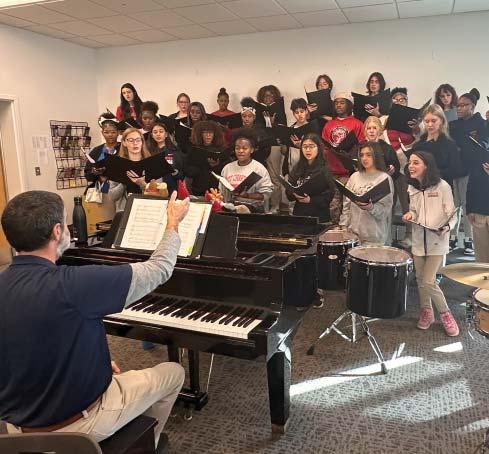
(Wilmington University – DRA105, 3 Credits)
Foundations of theatre, acting and ensemble building. Units include Playwriting (in conjunction with the Delaware Theatre Company’s (DTC) Young Playwrights Festival), introduction to theatre games and improvisation, stage movement, pantomime, script analysis, theatre history, an introduction to technical theatre and a major unit on Shakespeare, focusing on “A Midsummer Night’s Dream”. Students learn to be critical theatre viewers, both in live and film forms, and how to critique all elements of theatre effectiveness including how performances impact the audience’s “willing suspension of disbelief.” A final One Act Play performance showcases learned skills. 1 Credit
(Wilmington University – DRA110, 3 Credits)
Topics include character analysis, monologues, performing Shakespeare (focus on “Twelfth Night”), design (costume, set, etc), playwriting (in conjunction with the DTC’s Young Playwrights Festival), and continues study of theatre games and improvisation. Students continue to critique elements of theatre effectivness and performance impact. Various acting techniques (Stanislavski, Meisner, Hagan, Adler, etc.) prepare students for character development. The year culminates in a one-act play production, encompassing acting and technical theatre skills. 1 Credit
Focuses on college audition preparations. Units include monologue preparation, character analysis, monologue and scene writing, performing Shakespeare, and theatre design. Each marking period, students read a play and give a presentation, with a performance element, to introducing their peers to a wide realm of plays, styles, and time periods. Theatre History studies continue, focusing on various theatre styles including Realistic Theatre, Theatre of the Absurd, and more. 1 Credit
Delve into the world of Musical Theatre! From Gilbert and Sullivan to Vaudeville students will see the change in theatrical styles both pre- and post“Showboat”, and learn musical theatre history. Singing and dancing, as well as acting and scene study is based in the musical format. Students reflect upon the impact of theater through changes in technology, world events, various cultural influences, and societal changes. 1 Credit
Study includes lighting design, sound, set design, costuming, production budgeting, and more. Students are required to work as tech or stage crew for at least one of two mainstage shows. Show production work is also during class time, a change of clothes may be required. 1 Credit

Introduces the Elements of Art and Principles of Design while developing drawing skills and painting techniques. Studio experiences explore a variety of media while developing student’s individual style and creative problem solving skills. Students respond, analyze, interpret, and critique their own and peers’ artwork through discussions and writing. 1 Credit
Students are expected to become independent thinkers and apply their knowledge of the elements and principles to their work in a variety of media (clay, wire, paper-mâché, found objects…) in order to demonstrate mastery of two and three-dimensional design skills and concepts. Students respond, analyze, interpret, and critique their own and peers’ artwork through discussions and writing. 1 Credit
Intended for advanced art students who have completed Visual Arts I & II; course incorporates learned skills to investigate more thoroughly two-dimensional and three-dimensional projects. Students must show initiative and good work habits in addition to an interested in art. 1 Credit
Through more individualized instruction, greater independence, and an increased knowledge of media and techniques, students will continue to study art criticism and aesthetics while developing artwork that reflects a personal style and interpretation and build a portfolio.
1 Credit
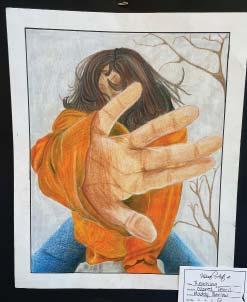
(Non-Visual Arts majors interested in this course must submit an application for acceptance.)
Beginner to intermediate artists begin with basic drawing exercises along with understanding drawing materials and how to use to maximum benefit. Students draw basic forms from a still life set up using direct lighting to more complex objects to help understand value. Instruction includes proper proportions, relationships, line and values, eye level and foundation perspective, direct lighting and cast shadows as well as soft and hard edges. Painting covers color mixing, application, selection and use of brushes and other painting tools, as well as composition. Students use a limited color palette in order to learn how to mix a variety of colors. 1 Credit
(Approval of appllication required for acceptance.)
Students work to produce a quality annual yearbook reflecting the pictorial history of the activities each school year. Using Photoshop, yearbook software and Excel, course includes:
• Develop a theme, determine story and photo ideas
• Design cover, end sheets & title page reflecting theme
• Create section master designs, type specs & graphic elements
• Create a workable ladder
• Set up story & photo assignments: “shoot to the shot”
• Sell advertising & organize book sales and distribution
• Edit content and finalize completed computer pages
• Establish and meet publication deadlines Course includes instruction on using digital camera equipment as well as photography basics. 1 Credit
Designated classes offer students the option to select an embedded honors distinction during the first marking period. In addition to normal class work, the honors path may require readings, advisory meetings, and/or supplementary assignments that delve deeper into topics covered. Students who elect to take honors credit should expect to spend extra time outside of class in addition to normal homework time. These students are generally held to higher expectations on assignments, participation, and contributions to class culture. If registered and after successful completion of an honors-level course, students earn an additional 0.5 quality point in the calculation of their GPA.
Students can earn college credit in designated classes starting in their freshman year. Dual enrollment courses are developed from original college course syllabi, including content, projects, assessments, and expectations, but are taught by our teachers. Students who wish to enroll in dual enrollment receive registration materials in the first few weeks of school. If registered & upon successful completion of a dual enrollment course, students earn college credits, which are generally transferable to other colleges. Dual enrollment registration is an additional fee.
Students can elect to take Advanced Placement (AP) courses, geared toward the respective AP exam. Courses align with College Board objectives and require significant levels of work inside and outside of the class meeting, including summer work. Students who earn a passing score on the AP exam may submit scores to the colleges for which they are applying & may receive college credit. AP exam registrations are an additional fee. Successful completion of an AP course will earn an additional 1.0 quality point in student’s GPA calculation.
Each year, Junior and Seniors may use one elective class to take one pair of semesterlong independent study early college courses. Successful completion a course earns a half credit toward their high school requirements AND credits as awarded by the college. Students are given one period in the day in which to work on these courses. Courses are taught by college professors via an online portal. Upon successful completion, of an early college class students will have earn college credit, which is generally transferable to other colleges. Additional fees and eligibility requirements are required to register for early college courses.
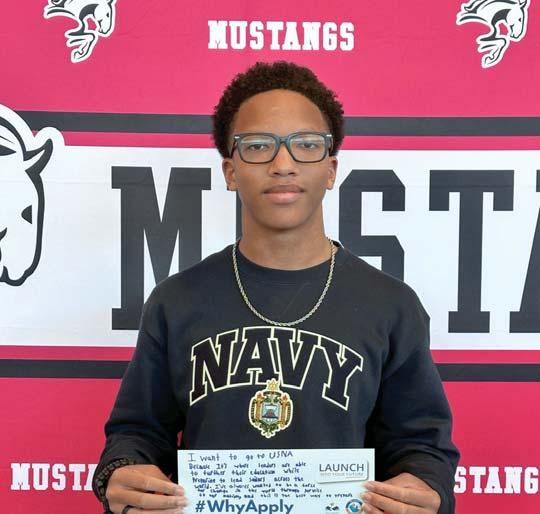
Families can choose to pay for these online, elective courses at the reduced cost offered by the college/university through MOT Charter.
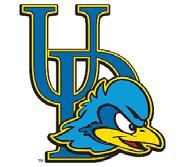
In order to be eligible for courses, juniors and seniors must hold at least a 3.60 GPA OR a minimum SAT/ PSAT score of 600 in verbal and 600 in math OR grades over 90% in AP classes. Eligible students must also obtain parent/guardian & school counselor/principal permission.
Successful completion of each Early College course earns students three college credits (unless otherwise noted) through University of Delaware and a half credit toward high school requirements at MOT Charter School.
Assesses the status of Black America in the modern technological order through an examination of the major spheres of institutional life, including employment, education politics, criminal justice and the military. ½ Credit
The relationship between media and culture; how media affects culture (i.e., socialization and role modeling); and exploration of new forms of mass communication. ½ Credit
Study of popular fiction (literary, cinematic, and/ or multimedia); may focus on period, theme, single author, etc. ½ Credit
“Going Green”, the haves and have nots, relevant politics - big contemporary issues. Can you get a job AND make a difference? Public Policy addresses issues & begins with you. Examines basic policy concepts/strategies used by citizens, government and societal institutions. ½ Credit
Current and historical media processes and their impact on art, design and culture. Image making and manipulation, video, audio, interactivity, and connectivity. ½ Credit
Introduces field of disability studies. Explores historical and critical perspectives on the definition & construction of disability. ½ Credit
Explores the complexities of our contemporary world through the lens of history. Opens with a meta-question, can the past teach? Followed with a range of contemporary concerns related to food; political borders; leisure and play; the social self; climate change; rights for androids; the meaning of music; and what the past tells us about corporations and power. ½ Credit
Introduces students to the challenges of leadership. An experiential practice-based change project will give students hands-on experience in applying the skills and practices of effective leadership to creative positive change. ½ Credit
Early College courses are taught by college professors via an online system, not by MOT Charter staff. Students work independently, using one junior or senior class elective period, to fulfill the requirements of these courses. Families can choose to pay for these online, elective courses at the reduced cost offered by the college/university through MOT Charter School. Successful completion of each Early College course earns three (3) college credits (unless otherwise noted) through West Virginia University and a half (½) credit at MOT Charter.
Introduction to the advertising field and the process, quantitative, strategic, and aesthetic, by which the sales message is planned, produced, and delivered. ½ Credit
Introduction to the study of art history from prehistory to the present in which major landmarks of world art and architecture are considered as aesthetic objects, cultural documents, and within their socio-historical contexts. ½ Credit
Current principles, theory, and practices for training service dogs. Offered online in Fall & Spring. ½ Credit
Explores the physical, psychological, and cognitive developmental changes of individuals who are functioning in family systems that change across the lifespan. ½ Credit
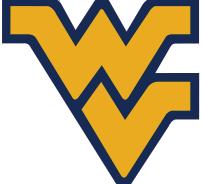
Students explore family processes and dynamics. Attention given to how family forms, functions, and expectations have changed across generations. Students study contemporary families in relation to how the concept of family has evolved over time. (Should be taken after successful completion of CDFS 110.) ½ Credit
Introduction to principles of communication in the one-to-many context. Emphasis is given to the creation and refutation of arguments. ½ Credit
Critical examination of mass media with special emphasis on ways in which social, economic, and psychological factors influence the structure, functions, & effects of the media. ½ Credit
Engineering problem solving methodologies and analysis. Use of computers in problem solving, technical report writing, team-based project work, and presentations. CO-/PRE-REQUISITE: Students must be taking or completed AP Calculus. ½ Credit
Impact of engineering on society throughout history. Developments in warfare, architecture, agriculture, manufacturing, communication, transportation, and their impacts on society. ½ Credit
introduces the esports ecosystem. Participants navigate through decades of gaming culture to determine the origins of competitive gaming and esports. Following the understanding of past events, learners review the current esports landscape and compare the nuances of esports to other, pre-existing industries. Offered online in Fall. ½ Credit
A survey course in forensic science including the overview of the various scientific disciplines that handle crime scene evidence and the systematic method of evidence analysis. Students learn about the collection, preservation, and methods of analysis of biological, chemical, and physical evidence. FIS201 is the prerequisite for FIS 202. ½ Credit
Overview of the crime scene investigation process for the non-examiner. Course topics include: safety, evidence collection, processing, and documentation. Virtual scenarios will serve as teaching aids. PRE-REQUISITE: Students must take and pass FIS201. ½ Credit
Composition and structure of the Earth and the physical processes that change Earth’s surface. GEOL101 is the prerequisite for GEOL 103. ½ Credit
Comparison and relationships of world regions. Geographical perspectives of contemporary global problems. Developing regions contrasted with modernized regions and the consequences of their interactions. ½ Credit
Evolution of the Earth and its inhabitants. PREREQUISITE: Students must take & pass GEOL101. ½ Credit
Overview of Federal, State, and local agencies and their role in the healthcare system. Emphasis on cost, access, quality and types of organizations and services provided. Offered online in Fall. ½ Credit
Introduction to the health information management profession and the health record. An overview of the health record, data format, structure, and documentation requirements including accreditation, licensure, regulatory standards and ethical standards of practice. Offered online in Fall. ½ Credit
Nutrient structure, metabolism, integrated function, and their importance to human wellbeing during all stages of the life cycle. Current concerns and those of special interest to college students in meeting nutritional needs. ½ Credit
Nutrient structure, metabolism, integrated function, and their importance to human wellbeing during all stages of the life cycle. Current concerns and those of special interest to college students in meeting nutritional needs. ½ Credit History of Landscape Architecture, LARC212
A broad survey of the history of the designed human environment with emphasis on the development of landscape architecture. Offered online in Fall semesters. ½ Credit
Examines the relationship between media, culture and society, with emphasis on the history, structure, and organization of the mass media.) Usually offered online each semester. ½ Credit 20th Century American Pop Music, MUSC113
Introduction of history and development of American popular music. ½ Credit
Early College courses are taught by college professors via an online system, not by MOT Charter staff. Students work independently, using one junior or senior class elective period, to fulfill the requirements of these courses. Families can choose to pay for these online, elective courses at the reduced cost offered by the college/university through MOT Charter School. Successful completion of each Early College course earns three (3) college credits (unless otherwise noted) through West Virginia University and a half (½) credit at MOT Charter.
Examination of music from various cultures (e.g. Native America, South India, Japan, Africa) within their cultural contexts. ½ Credit
Course explores American musical theatre, one of this country’s primary contributions to world culture, covering its origins, components and its major creative figures. ½ Credit
Introductory human anatomy course that uses a combined regional & systematic approach to examine the relationships & organization of the major structures within the thorax, abdomen, head/neck, and back/limbs regions of the body. ½ Credit
General medical terminology with emphasis on clinical and anatomic pathology terminology. ½ Credit

An elementary examination of such philosophical problems as the mind-body, existence of God, freedom and determinism, and the nature of persons and their knowledge. ½ Credit
An examination of current moral problems. Topics include: abortion, euthanasia, sexism and sexual equality, preferential treatment, animal rights, sexual morality, pornography, economic justice, paternalism, punishment. ½ Credit
Elementary study of critical thinking and reasoning. For students who want to improve their skills in recognizing fallacious patterns of reasoning, constructing acceptable arguments, and criticizing faulty lines of reasoning. ½ Credit
General survey of American national government & politics. (continued)
Analysis of issues in post-cold war international politics, ranging from traditional major power diplomacy and intervention to the newer problems of economic interdependence and development, human rights, population pressures on limited resources, and the environment. ½ Credit
Offers an overview of the principles of human behavior. Developmental theories, psychophysiology, thinking, learning, personality theories, abnormal, and deviant psychology are introduced. Methods of assessment and research principles are discussed. ½ Credit
Course explores five of the most widely practiced world religions: Judaism, Christianity, Islam, Hinduism, and Buddhism. Students are introduced to the history and basic tenets of each faith. ½ Credit
Introduction to the roles, training, and ethical standards of sport and performance psychology, establish a foundation of knowledge on the psychological factors that influence performance in sport and other contexts, and assess strengths and challenges of mental performance and mental skills training. Offered online in Fall and Spring semesters. ½ Credit
Introduces students to the fundamental concepts and methods of the scientific study of group behavior in terms of social interactions and processes. ½ Credit
Essentials of human evolution and prehistory with a concentration on the varieties of languages and cultures found among peoples of the world. ½ Credit
Sociological analysis of the causes, effects and approaches to preventing & reducing social problems in American society. ½ Credit
Overview of science of conservation ecology with emphasis on the concepts of biological diversity, extension, habitat loss & fragmentation, establishment of protected areas, endangered species, & establishment & preservation of new populations. ½ Credit
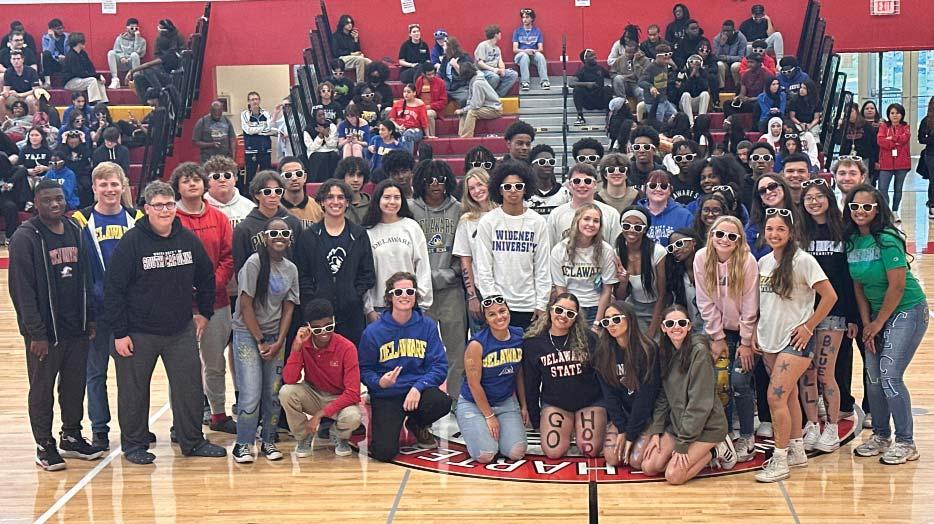
Early College courses are taught by college professors via an online system, not by MOT Charter staff. Students work independently, using one junior or senior class elective period, to fulfill the requirements of these courses. Families can choose to pay for these online, elective courses at the reduced cost offered by the college/university through MOT Charter School. Successful completion of each Early College course earns three (3) college credits (unless otherwise noted) through Wilmington University and a half (½) credit at MOT Charter.
Hands-on studio course for non-art majors, students explore the use of drawing and painting media. Learn to create works of art refined by a variety of skills and techniques to develop and express your individual artistic style. ½ Credit
Studies the double-entry accounting system, including: the accounting cycle, books of original entry, preparation of journal entries, worksheets, the trial balance, and statements of financial position and income. Emphasis is on the proper recording and reporting of assets, liabilities, equity, revenue, and expenses. ½ Credit
The world of business is a fast-paced and dynamic environment. Business owners today need to be skilled in dealing with diversity, promoting ethics and social responsibility, sustaining customer relationships, understanding the impact of government regulation on business, finance and accounting, marketing, information systems, and the importance of e-business. ½ Credit
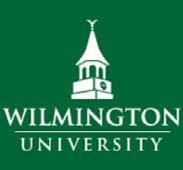
Examines the human body and its major systems. Inc the chemical and cellular basis of life, along with tissues, the skeletal, muscular, nervous and endocrine systems. In this hands-on course, students will conduct dissections and perform experiments in laboratory conditions. ½ Credit
A survey of agencies and processes involved in the administration of criminal justice. Survey reviews the functions of the legislature, police, prosecutor, courts, and correctional system. Problems of law enforcement in a democratic society are discussed. Course ties together all components of criminal justice and includes issues of both juvenile & adult offenders. ½ Credit
Emphasizes both macro- and microeconomics for the non-business student. Basic economic concepts, tools and terms economists use, and methods of economic analysis are covered. A student’s understanding of the American business system is developed. ½ Credit
Learn basic skills needed for college-level academic writing. Includes development and use of strategies for academic success, writing strategies, and critical reading skills. Students learn to plan, draft, revise, summarize, and combine their own ideas with source information to craft summary-response papers and argumentative essays. Learn strategies for self-regulation: goal setting, task management, progress monitoring, and reflection. (Open to seniors only, and is semester-based. To enroll, student must meet WilmU’s prerequisite: SAT ENG score of 480 or Accuplacer). ½ Credit
Study of earth & atmospheric phenomena that result in weather. Weather theories, forecasting, dissemination, and applications of weather principles. Developments resulting from atmospheric pollution are examined. ½ Credit
Identifies causes of environmental degradation and examines current efforts toward correcting a variety of complex environmental situations. Emphasis is placed on the role of humans using science and technology to find solutions to the problems facing earth. ½ Credit
Introduces the concepts of programming and scripting within a game engine. Primarily used to develop interactivity; for the purposes of this class, it will apply to the Unity game engine to create game/environment functionality. ½ Credit
Covers software introduced in game program and beyond. Audio, video, programming, 3D, animation, game engines, and development methodologies are introduced and explored. Students may take this course if they want a comprehensive introduction to a wide range of software options, with practical applications to showcase those software functions. ½ Credit
Introduces concepts of programming & scripting within a game engine. Primarily used to develop interactivity on web sites; for class purposes, it will apply to the Unity game engine in order to create game/environment functionality. ½ Credit
Studies artistic trends and developing technologies that have influenced creative work throughout Europe and America. Content focuses on relationship between design and art, as well as the artist’s role & influence on Western Culture and Society. ½ Credit
Focuses on the interactions between people and their regional environments and how those interactions produce distinctive places to live. Students develop the ability to read maps, use an atlas to learn locations and characteristics of major regions and sub-regions of the world, and examine the effects of contemporary communication and transportation technologies of the global economy and the interconnection of people worldwide. An overview of human geography, political geography, and urban geography is included. ½ Credit
Increases comprehension and perception of music, through discussion of developmental periods (Middle Ages, Renaissance, Baroque, Classical, Romantic, 1900-1945, and 1945-today) in terms of historical background, social influences, characteristics, styles, composers, representative compositions, and performance media. Specific pieces of music from each developmental period will be analyzed based on the musical concepts found in the piece (pitch, dynamics, tone color, instrumentation, texture, form, etc.). ½ Credit
Explores the emergence of Rock and Roll as a musical genre in America in the mid-twentieth century. Historical events and technology will be discussed in relation to their influence on Rock and Roll music. Specific pieces of music will be analyzed in terms of compositional structure, instrumentation, historical significance, and cultural influence. ½ Credit
Course challenges students with the question: “Why do you think the way you do?” It gives practical consideration to overcoming thinking errors, developing ethical thought, and applying career-specific principles of effective critical thinking in real-life situations. ½ Credit
(continued)
Early College courses are taught by college professors via an online system, not by MOT Charter staff. Students work independently, using one junior or senior class elective period, to fulfill the requirements of these courses. Families can choose to pay for these online, elective courses at the reduced cost offered by the college/university through MOT Charter School. Successful completion of each Early College course earns three (3) college credits (unless otherwise noted) through Wilmington University and a half (½) credit at MOT Charter.
Have you ever wondered why people act or think the way they do? What about how you can change your behavior? This psychology overview provide a framework for understanding self and others regardless of major field of study. Explore how psychology can be applied to school, relationships, careers, and daily life. Also provides foundation for future study of psychology for those furthering their study in this area. ½ Credit
Introduces students to the fundamental concepts and methods of the scientific study of group behavior in terms of social interactions and processes. An introduction to social psychology, socialization, personal development, culture, and personality is offered. ½ Credit
Challenges students with the question: “Why do you think the way you do?” Gives practical consideration to overcoming thinking errors, developing ethical thought, & applying careerspecific principles of effective critical thinking in real-life situations. ½ Credit
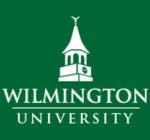
Introduces principles of sound recording and sound design using analog and digital technologies. The aim is to provide the students with the skills necessary to set up and use current equipment and manipulate sound in order to maximize communication. ½ Credit
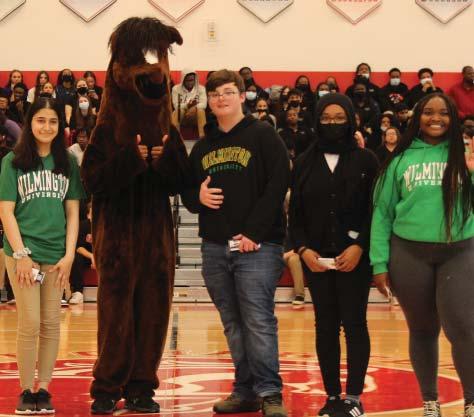
In addition to clubs or athletics, students can deepen their pathway or areas of interest through involement in the following honor societies. These organizations also may offer national opportunities and a way to connect community service interest with volunteer opportunities.
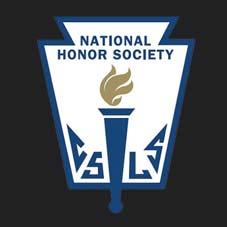
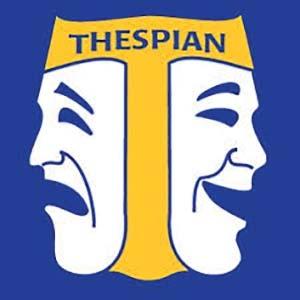
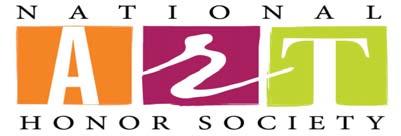
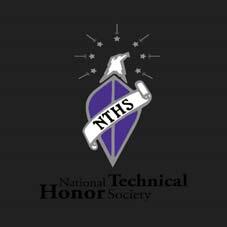

We are incredibly proud to receive both national and state-level recognition for the dedicion and hard work of our students and staff.
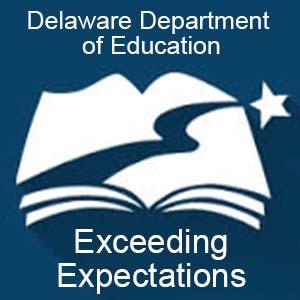
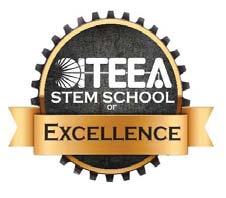
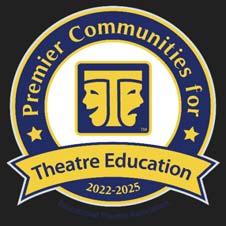
The MOT Charter School counseling program provides all students with a comprehensive school counseling curriculum with a focus on preparing students for post-secondary education. Students in all grades are encouraged and supported to take an active role in planning for their post-secondary goals. In addition to academic and college advising, MOT Charter High School counselors also provide counseling and support related to social and emotional needs.
Freshman Year
Work begins to create a smooth transition from middle school to high school. Students explore topics related to time management, successful study habits, communication skills, online responsibility and school expectations on citizenship and community. In addition, they are encouraged to begin thinking about postsecondary pursuits through academic counseling and Naviance. Within the Naviance platform, students explore interests and researching college and career options. Freshmen may meet with their counselors for academic advisement or to address personal concerns.
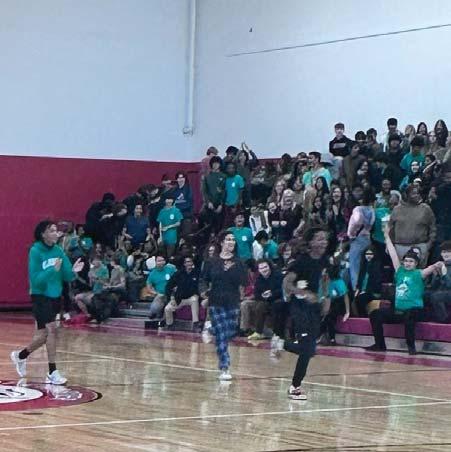
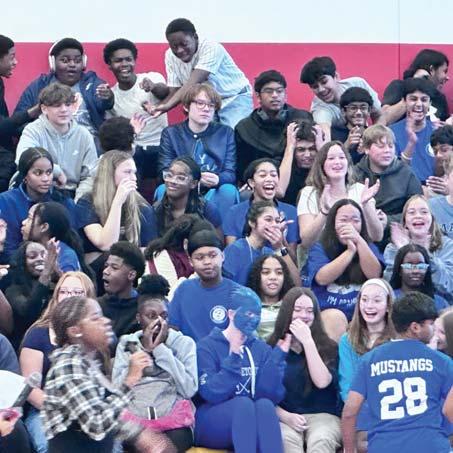
Building on freshman year, counselors continue to support college preparation through academic opportunities and Naviance. Sophomores explore areas of interest related to majors, careers, and post-secondary options, including how to begin the college search process. Students take the PSAT/NMSQT in the fall and PSAT 10 in the spring. Sophomores may meet with their counselor for academic advisement or to address personal concerns.
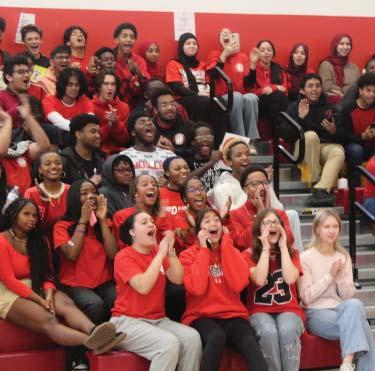
Juniors build on the foundational groundwork completed in freshman and sophomore years. Students continue to identify and match colleges with their interests and postsecondary goals. Naviance Student is used for college and career exploration and they are encouraged to engage with college admissions counselors through campus visits and in-house college admissions presentations. In the spring, all juniors take the school-wide SAT. Parent/ Student workshops and presentations related to the college process and Naviance platform are offered. Juniors meet with their counselor for academic advisement and/ or personal concerns.
Beginning in the summer prior to senior year, students are encouraged to update all information in Naviance Student in preparation for submitting applications for college. Senior workshops and presentations are provided for students and parents to offer guidance and support through the college application, scholarships and financial aid process. Several community and state based organizations are brought in to provide additional support to students and families. Seniors have several check-ins during the year surrounding their post-secondary status.
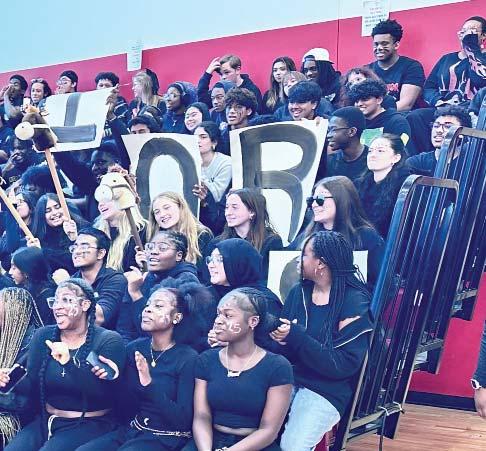
A web-based tool that helps students discover, explore and plan their college and career goals and options, and allows parents to be engaged in that process. Naviance Student can be used to:
Research colleges – Students identify their college preferences in terms of size, location, major, etc., to generate a “match list” which shows how each fits the student’s wants and needs. Easily compare admissions data, tuition, GPA, standardized test scores, etc. Manage timelines and deadlines for college and career decisions.
Research careers – Explore hundreds of careers and career clusters, and take career assessments. Students complete career assessments to help them discover more about their personality. Results to help find the different types of career options, including job descriptions, task and activities performed in that career and expected wages.
Create plans for the future – Create goals and to-dos, and complete tasks assigned to you by the school to better prepare yourself for your future college and career goals.
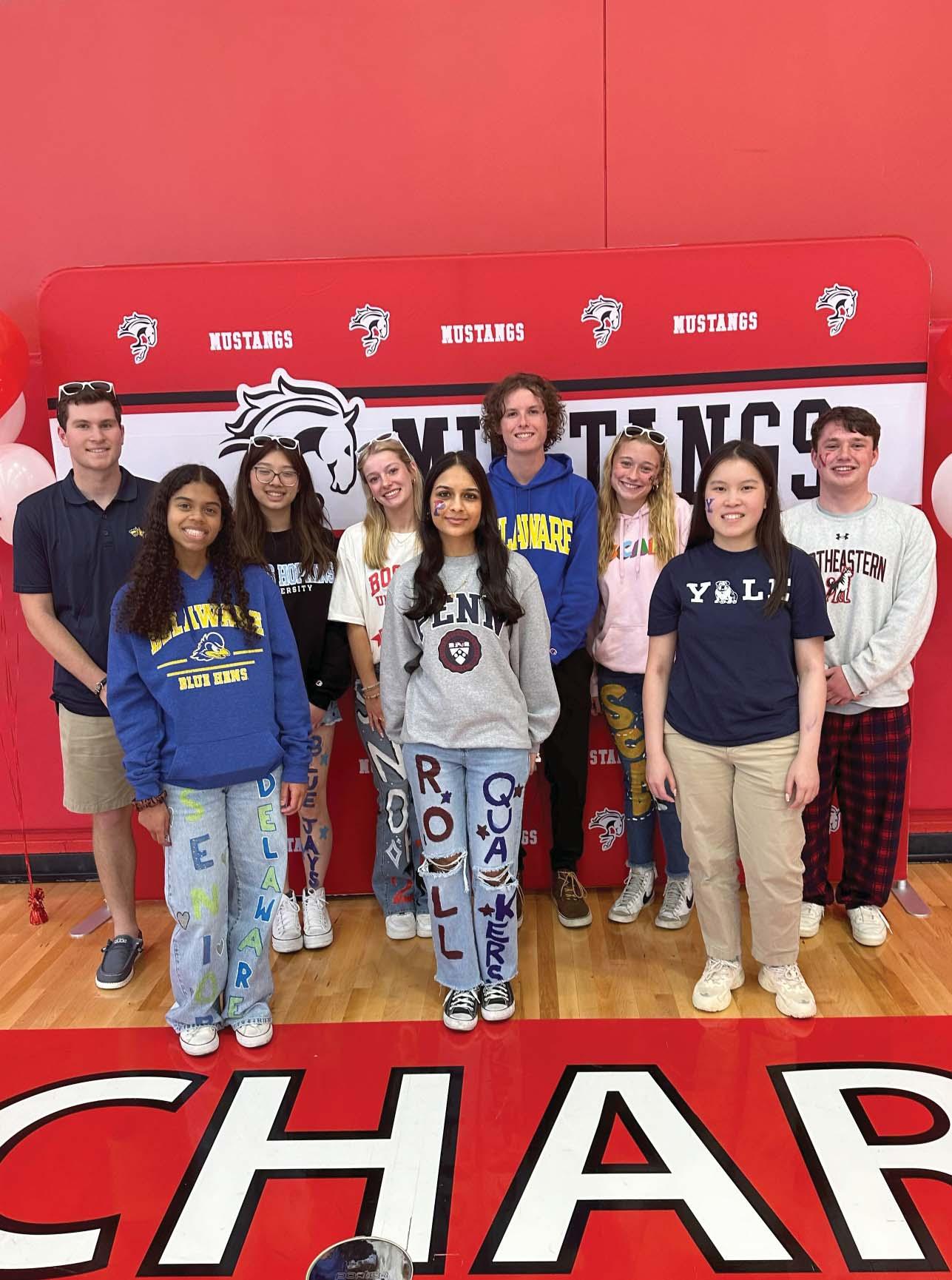
Student must carry an 8-credit load each year and earn a minimum of 28 credits total (three in the declared major pathway), to fulfill graduation requirements. The Principal, as necessary, may resolve any discrepancies. MOT Charter High School requirements are set to exceed minimum state requirements while meeting college-preparatory requirements as outlined below:
All STEM majors must also take 1 credit of engineering. Arts majors must complete: 3 credits in Marketing (Class of 2026), Class of 2027 and beyond, 2 credits in Marketing or Digial Media. *A Math class must be taken and passed in the student’s senior year.
*A Math class must be taken and passed in the student’s senior year.
Social Studies 4 Social (2 of history) of history) 3-4 Science (3 labs) 3-4 Science 3-4 World Language 3-4 World 1 (college-prep.) Elective 1 Elective At lease 20 core (English, Math, Science, Social Studies & At lease 20 core Social Studies & World Language) class credits World Language) class credits.
AdelphiUniversity
Alabama State University
Albany State University
Albright College
Alfred University
Allegheny College
Allen University
Alvernia University
AMDA
American University
Amherst College
Anderson University
Andrews University
Anna Maria College
Arcadia University
Arizona State University
Art Academy of Cincinnati
Augustana College
Aurora University
Austin College
Babson College
Ball State University
Bates College
Bay Path University
Baylor University
Benedict College
Bentley University
Bethune-Cookman
University
Binghamton University
Bloomsburg University of PA
Boston College
Boston University
Bournemouth University
Bowie State University
Brandeis University
Bridgewater College
Brookhaven College
Broward College
Brown University
Bryn Mawr College
Bucknell University
Caldwell University
California Northstate University
California University of PA
Campbell University
Capitol Technology University
Cardiff Metropolitan University
Carlton College
Carnegie Mellon University
Case Western Reserve University
Catholic University of America
Cecil College
Cedar Crest College
Cedarville University
Champlain College
Chestnut Hill College
Cheyney University
Christopher Newport University
Clark Atlanta University
Clark University
Clarkson University
Clemson University
Coastal Carolina University
Colby-Sawyer College
Colgate University
College of Charleston
Colorado State University
Columbia College
Columbia University
Columbus College of Art and Design
Commonwealth University
Community College of Philadelphia
Coppin State University
Cornell University
Creighton University
Culinary Institute of America
CUNY Brooklyn College
CUNY City College
Curry College
Dartmouth College
Davidson University
Daytona State College
Dean College
Delaware State University
Delaware Technical & Community College
Delaware Valley University
Denison University
DeSales University
Dickinson College
Dillard University
Dominican University of CA
Drake University
Drew University
Drexel University
Duke University
Duquesne University
East Carolina University
Eastern University
DePaul University
East Stroudsburg University
Un
Edinboro University of PA
Elizabeth City University
Elizabethtown College
Elmira College
Elon University
Embry-Riddle Aeronautical University
Emerson College
Emmanuel College
Emory University
Fairfield University
Fairleigh Dickinson University
Fisher College
Flagler College
Florida A&M University
Florida Atlantic University
Florida Gulf Coast University
Florida Institute of Technology
Florida International University
Florida Memorial University
Florida Southern College
Fordham University
Franklin & Marshall College
Franklin University
Switzerland
Frostburg University
Full Sail University
Gannon University
Geneva College
George Fox University
George Mason University
George Washington
University
Georgia Institute of Technology 2018-2024
As a college-preparatory focused school, we are excited to celebrate the acceptances, listed below, of our seniors to schools worldwide. Those noted in Red below indicate where our Mustangs chose for their post-secondary education pursuits.


Denotes Mustang student-athlete scholarship commitments
Georgia State University
Georgian Court University
Gettysburg College
Goldey-Beacom College
Gordon College
Goucher College
Grace College and Theological Seminary
Grinnell College
Grove City College
Hamilton College
Hampden-Sydney College
Hampshire College
Hampton University
Harrisburg University of Science and Technology
Harvard University
Harvey Mudd College
Haverford College
Hawaii Pacific University
High Point University
Highlands College
Hofstra University
Hood College
Howard University
Illinois College
Illinois Institute of Technology
Immaculata University
Indiana University
Indiana University of PA
International Fashion Academy–Paris
Ithaca College
Jacksonville University
James Madison University
John Brown University
John Carroll University
Lake Superior State University
Lasell University
LaSierra University
Lebanon Valley College
Lehigh University
Le Moyne College
LeTourneau University
Lewis University
Liberty University

LIM College
Lincoln University
Livingstone College
Longwood University
Louisiana State University
Loyola University Chicago
Loyola University Maryland
Loyola University New
Orleans
Lycoming College
Lynchburg College
Lynn University
Macalester College
Manhattan College
Manhattanville College
Mansfield University of PA
Mary Baldwin University
Mary Immaculate College
Maryland Institute College of Art
Marymount Manhattan College
Marywood University
Massachusetts College of Art & Design
Massachusetts College of Pharmacy & Health Sciences
Maynooth University
Monmouth University
Montclair State University
Moore College of Art and Design
Morehouse College
Morgan State University
Mount Holyoke College
Mount St. Mary’s University
Muhlenberg College

Neumann University
Neumont College
New England College
New Haven University
New Jersey City University
New Jersey Institute of Technology
New York Institute of Technology
New York University
North Carolina A&T
University
North Carolina Central University
North Carolina State University
Northeastern University
Northwestern University
Notre Dame of MD
University
NOVA Southeastern University
Oakwood University
Oberlin College
Ohio University
Ohio Wesleyan University
Old Dominion University
Oral Roberts University
Oregon State University


Johns Hopkins University
Johnson & Wales University
Juniata College
Kean University
Kent State University
Kenyon College
Keuka College
Keystone College
King’s College
Kutztown University
La Salle University
Lafayette College
McDaniel College
Mercer University
Meredith College
Merrimack College
Messiah College
Miami Dade College
Miami University
MICA
Michigan State University
Millersville University of PA
Misericordia University
Missouri State University
Pace University
Pacific Union College
Palm Beach Atlantic University

PA College of Art & Design
PA College of Technology
Pennsylvania State University
Pensacola State College
Pepperdine University
Pomona College
Pratt Institute
Princeton University
Purdue University
Queens University
Quinnipiac University
Radford University
Randolph College
Reed College
Regent College
Regis College
Rensselaer Polytechnic Institute
Rhode Island College
Rice University
Rider University
Roanoke College
Robert Morris University
Roberts Wesleyan College
Rochester Institute of Technology
Rowan University

Russell Sage College
Rutgers University

Saint Edward’s University
Saint Elizabeth University

Saint Joseph’s University
Saint Leo University
Saint Louis University
Saint Peter’s University

Salisbury University
San Diego State University
Santa Clara University
Savannah College of Art and Design
School of the Art Institute of Chicago
Seattle University
Seton Hall University
Shaw University
Shenandoah University
Shepherd University
Shippensburg University
Siena College
Slippery Rock University
Spelman College
Southern Adventist University
Southern Connecticut State University
So. New Hampshire University
Spelman College
St Catherine University
St. John’s University
St. Mary’s College of Maryland
Stanford University
Stevens Institute of Technology
Stevenson University
Stockton University
Stony Brook University
Suffolk University
State Univerrsity of New York
Brockport
Environ. Science & Forestry
Maritime University
New Paltz
Susquehanna University
Swarthmore College
Syracuse University
Temple University

Texas A&M University
Texas Christian University
The American University of Paris of Rome
The Citadel
The College of New Jersey
The College of Wooster
The George Washington University
The Ohio State University
The University of Arizona
The University of Iowa
The University of Oklahoma
The University of Tampa
The University of the Arts
Thiel College
Thomas College
Thomas Jefferson University
Towson University
Trinity College
Transylvania University
Truman State University
Tufts University
Tulane University
Tuskegee University
Union College
United States Military
Academy at West Point
Universal Technical Institute
University College Dublin
University at Buffalo
University of Alabama
University of Arizona
University of Bridgeport
University of California
Berkley Davis
Irvine
Los Angeles
San Diego
University of Central Florida
University of Chicago
University of Cincinnati
University of Colorado.
Boulder
University of Connecticut
University of Delaware
University of Findlay
University of Florida
University of Georgia
University of Hartford
University of Hawaii at Manoa
University of Houston
University of Illinois at Chicago at Urbana-Champaign
University of Kentucky
University of Limerick
University of Lynchburg
University of Maine
University of Mary
Washington
University of Maryland
College Park
Baltimore County
Eastern Shore
University of Massachusetts
Amherst
Boston
University of Miami
University of Michigan
As a college-preparatory focused school, we are excited to celebrate the acceptances, listed below, of our seniors to schools worldwide. Those noted in Red below indicate where our Mustangs chose for their post-secondary education pursuits.


Denotes Mustang student-athlete scholarship commitments
University of Minnesota
University of Mississippi
University of Missouri
University of Montana
University of Nevada
University of New England
University of New Hampshire
University of New Haven
University of New Orleans
University of North Carolina at Chapel Hill at Charlotte at Wilmington
University of North Dakota
University of North Florida

University of Notre Dame
University of Oklahoma
University of Oregon
University of Pennsylvania
University of Pittsburgh
University of Puerto RicoArecibo
University of Puerto RicoMayaguez
University of Rhode Island
University of Richmond
University of Rochester
University of San Francisco
University of Scranton
University of South Carolina
University of South Florida
University of Southern California
University of Southern Maine
University of Tampa
University of Tennessee
University of Texas at Austin
University of the District of Columbia
University of Valley Forge
University of Vermont
University of Virginia
University of Washington
University of Wisconsin
Ursinus College
Valley Forge Military College
Vanderbilt University
Vassar College
Villanova University
Virginia Commonwealth University
Virginia Polytechnic
Institute & State University
Virginia State University
Virginia Tech
Virginia Wesleyan University
Voorhees College
Wagner College
Wake Forest University
Walla Walla University
Wartburg College
Washington & Jefferson College
Washington & Lee University
Washington College

Washington State University
Washington University in St
Louis
Wellesley College
Wentworth Institute of Technology
Wesleyan University
West Chester University
West Virginia State University
West Virginia University
Western Carolina University
Western Michigan University
Western New England University
Westminster College
Whitman College
Widener University
Wilkes University
William & Mary
William Paterson University
Williams College
Wilmington University
Wilson College
Wingate University
Winona State University
Xavier University
Xavier University of Louisiana
Yale University
York College of Pennsylvania
